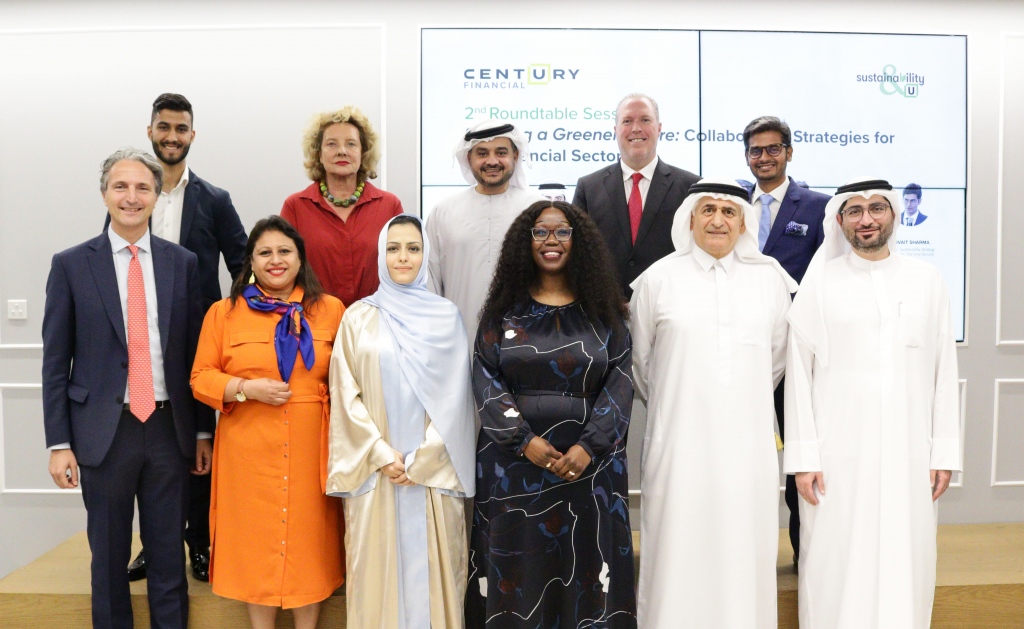
Shaping a Greener Future: Collaborative Strategies for the Financial Sector - Second Successful Roundtable
The highly anticipated second roundtable discussion on "Shaping a Greener Future: Collaborative Strategies for the Financial Sector" took place on the 7th of June 2023 bringing together influential leaders, experts, and stakeholders from the financial industry. Hosted by Century Financial, the roundtable aimed to foster dialogue and collaboration towards building a sustainable and environmentally responsible financial sector.
The roundtable, held at Century Financial, saw a diverse group of participants, including CEOs, policymakers, sustainability experts, and thought leaders, engaging in insightful conversations and sharing innovative approaches to address the pressing environmental challenges facing the financial industry.
With the world increasingly recognizing the urgent need to combat climate change and promote sustainable practices, the event focused on exploring strategies for aligning financial investments with environmental goals. The discussions delved into topics such as sustainable investment frameworks, green financing, ESG (Environmental, Social, and Governance) integration, and the role of technology in advancing sustainable finance.
In her opening address Sameera Fernandes, Director – Corporate Affairs & Sustainability, Century Financial commented, “Only when financial institutions, regulators, and other stakeholders collaborate, can we accelerate the transition towards a greener economy. The roundtable helps identify collaborative initiatives, identifies barriers to sustainable finance, and is an ideal platform to case studies. Here is where we can exchange ideas, best practices, and innovative approaches, enabling all of us to play an instrumental role in collectively shaping the future of the financial sector”.
Commented Bal Krishen, Chairman and CEO, Century Financial, "We believe that collaboration is the key to driving meaningful change in the financial sector and addressing environmental challenges. The second roundtable served as an essential platform for fostering dialogue and identifying actionable strategies that financial institutions can adopt to promote a greener future."
Panelists included Regina Von Flemming, Vice Chairman of the Supervisory Board of MTS, Ibrahim Al Blooshi - Al Maktoum Global Initiatives, Dr. Arshi Ayub Mohamed Zaveri - Trust with Trade UAE, Faisal Mohammed Al Shimmari - Mashreq Bank, Peter Ware - ADGM Academy, Ersoy Erkazanci – Bloomberg HT, Rachel A. Aron - Tugo Cwiny Consulting, Advait Sharma – The One Percent
"We firmly believe that sustainability should be at the core of every financial decision we make. We focus on renewable energy, R&D for clean energy, sustainabe water management and recycling. Awareness and education is other pillars we are focusing on. We try to teach people how to manage their resources. By integrating environmental, social, and governance considerations into investment practices, promoting green financing mechanisms, and fostering collaboration among industry stakeholders, we are paving the way for a more resilient and sustainable financial landscape”, commented Ibrahim Al Blooshi, Al Maktoum Global Initiatives.
"At Mashreq Bank, we recognize our responsibility to foster sustainability in the financial sector and drive positive environmental and social impact. We are committed to integrating sustainability into our core business practices, from responsible lending to promoting green financing solutions. Let our investments create a positive impact, forging a sustainable path for generations to come”, commented Faisal Mohammed Al Shimmari, Mashreq Bank.
The roundtable concluded with a call to action, emphasizing the importance of continued collaboration and the need for robust policies and frameworks to support sustainable finance. Participants expressed their commitment to implementing the ideas and solutions discussed, with several organizations announcing new initiatives to enhance their environmental sustainability efforts.
The success of the second roundtable highlights the growing recognition within the financial sector that embracing sustainability is not only a moral imperative but also an economic opportunity. It signifies a collective commitment to drive positive change, as financial institutions recognize their role in shaping a greener future.



























